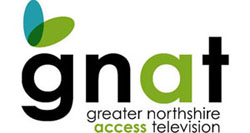Clouds on the Horizon: The public’s right to know is under attack

By Patrick Leahy
This is the first Sunshine Week, since it began in 2005, when the public’s right to know has been under direct assault, and on several fronts. “Fake news,” “alternative facts,” retaliatory restrictions of press access by the White House, and demonizing attacks on the working press are eroding the public’s access to real facts and real information about what their government is doing.
Next week the Senate Judiciary Committee will convene for crucial hearings to consider the nomination of Judge Neil Gorsuch to serve on the United States Supreme Court. These hearings are a unique moment when all three branches of government converge as senators consider a presidentially appointed nominee to serve on the highest court in the land. I plan to use these public hearings to ask Judge Gorsuch about vital matters affecting millions of Americans, and about how he will approach those issues if he is confirmed.
It is fitting that these hearings will occur just after Sunshine Week, a time when we rededicate ourselves to transparency in government. It was Supreme Court Justice Louis Brandeis, a staunch believer in open government, who famously said that sunlight is the best disinfectant. It is often the press that shines the sunlight in dark corners where we need it most. Since the beginning of our republic, Americans have recognized the freedom of the press as central to our democracy. But today, that basic understanding is being tested by a president who apparently needs a refresher.
Our Constitution provides for freedom of the press because a democracy cannot survive without it. But a free press is not just a constitutional requirement; it is essential for the public’s participation and faith in democracy. The press informs the public and holds elected officials accountable. It serves as a critical check on our government, shining a light on corruption, exploitation, injustice, and excess.
With the new administration, the very existence of facts and truth seem to be under attack. From his first days in office, in which he made outlandish claims about his inauguration crowd size, the president has waged a war against reality. President Trump labels unfavorable reports as “fake news,” while simultaneously decrying the leaks from his administration that gave rise to the reports in the first place. And in an attempt at censorship, his administration has retaliated against respected media institutions by limiting their access to cover the White House.
Instead of censoring the media, we have a responsibility to ensure it can operate freely. Last year we took a significant step forward when Congress finally enacted my FOIA Improvement Act to strengthen and modernize the Freedom of Information Act — our nation’s premier transparency law and a tool the press relies on to root out the truth behind government spin. This new law, which took years of hard work to pass, made permanent President Obama’s directive that government agencies operate with a “presumption of openness” when considering the release of government information under FOIA. I fought for this strengthening legislation because I believe we have to hold all presidents and their administrations accountable to the highest standards. In retrospect, given the Trump Administration’s hostility to the press, this legislation could not have been better timed. By codifying the presumption of openness, we declare that sunshine, not secrecy, is the default setting of our government.
While passing the FOIA Improvement Act is important progress, we cannot stop there. We must make sure that our government conducts its work in public where possible and uses technology to invite more people into public proceedings. This access and transparency were a priority for me when I was chairman of the Judiciary Committee during the consideration of the last two Supreme Court nominees. And for me this will remain a top priority. We have already seen one Trump nominee mislead the Judiciary Committee under oath when Attorney General Jeff Sessions did not accurately respond to my direct question and then failed to disclose false testimony, until prompted by news reports. We cannot allow that to happen again. Not when the stakes are so high for our system of justice and for our democracy.
Despite the alarming attacks on the free press from our new president and the misleading testimony of his Cabinet members, I believe we can and we must continue to bring more transparency to government. We did so last year with the FOIA Improvement Act, and we can continue by promoting transparency and accountability through technology. My parents ran an independent printing press in Vermont. From an early age, I understood the power of technology to inform the public. Today, all that separates our citizens from vital information and news is often the click of a button.
Next week, Vermonters and all Americans will be able to tune in to the Senate Judiciary Committee’s public consideration of a Supreme Court nominee. While this same process should have been afforded to Chief Judge Merrick Garland, President Obama’s highly qualified nominee to fill the Supreme Court vacancy, Republicans broke a century of Senate tradition and refused him the opportunity of a public hearing. Now we are faced with a new nominee for the highest court in the land, nominated by a president who has already shown hostility to independent judges who dare to uphold the Constitution, and to journalists so bold as to write the truth. Next week’s hearings mark a time where transparency and a free press can illuminate for the American people exactly what is at stake with this Supreme Court nominee and this presidency. During this Sunshine Week, let us all remember to keep the spotlight shining.
Sen. Patrick Leahy is Vermont’s senior U.S. Senator




